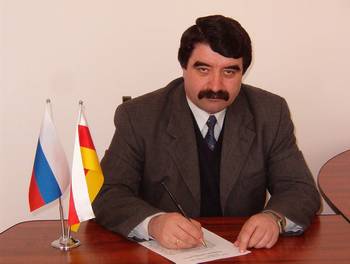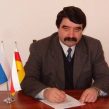
RUSSIAN TACTICS DERAIL GENEVA TALKS ON ABKHAZIA AND SOUTH OSSETIA
Publication: Eurasia Daily Monitor Volume: 5 Issue: 198
By:

International discussions on security and stability arrangements in South Ossetia and Abkhazia, Georgia, were launched at the Palace of Nations in Geneva on October 15. The process is expected to be a long one, but it adjourned on the first day amid disagreement about how to continue. Russia forced the adjournment by insisting that the South Ossetian and Abkhaz delegations be treated equally with the Georgian and other delegations.
The start of this process was envisaged in the six-point armistice of August 12 and the September 8 addendum, both brokered by France on the EU’s behalf in the Russia-Georgia conflict.
UN Secretary-General Ban Ki-moon, the European Union’s CFSP High Representative Javier Solana, the EU External Affairs Commissioner Benita Ferrero-Waldner, French Minister of Foreign Affairs Bernard Kouchner (representing the EU’s presiding country), OSCE Chairman-in-Office Alexander Stubb, Russian State Secretary for Foreign Affairs Grigory Karasin, and U.S. Assistant Secretary of State Daniel Fried convened in Geneva to launch the discussions. The UN, EU, and OSCE have the status of mediators within this process. The United States, Russia, and Georgia are official participants in the discussions.
With the launch of this process, a truly international format was created for negotiations on the South Ossetia and Abkhazia conflicts. Moreover, this format, as well as the set of armistice documents, clearly subsumes these two conflicts to the primary Russia-Georgia conflict.
Procedurally at least, these are major and long-overdue changes. Russia had unilaterally controlled the negotiating formats on South Ossetia and Abkhazia from the early 1990s until now and had insisted that these were local conflicts within Georgia, obscuring Russia’s responsibility for conducting an interstate conflict against Georgia through proxies. With Russia’s invasion of Georgia in August of this year, however, those pretenses could no longer be sustained.
The negotiating format’s transformation comes too late, however, to affect the conflict’s main outcome. Moscow has “resolved” the South Ossetia and Abkhazia conflicts by seizing the two territories and “recognizing” them on August 26 as “independent states,” while essentially incorporating them into Russia. All the other participants in the Geneva discussions regard that fait accompli as unlawful and unacceptable, but this forum can not reverse the situation on the ground.
The Geneva discussions can, however, serve to create a more secure environment for Georgia by mitigating Russian pressures; to seek international support for the Georgian expellees’ return to their homes in Abkhazia and South Ossetia; and to uphold the principle of Georgia’s territorial integrity along with its legal title to recover that integrity in the future. These are Georgia’s main goals within the Geneva process, and they are basically aligned with the U.S. and EU positions (Georgian Ministry of Foreign Affairs statements, Civil Georgia, October 11-15).
As an immediate priority, Georgia calls for the withdrawal of Russian troops from Akhalgori, upper Kodori, and Perevi, in accordance with the stipulation in the armistice that troops must withdraw to the lines held before August 7. Russian forces withdrew from the inner Georgian “security zones” on October 8 (two days ahead of the deadline) but not from those three locations. On a larger scale, Russia is deploying more troops in Abkhazia and South Ossetia, breaching the stipulation on troop withdrawal to pre-August 7 lines.
Russia seeks to use the Geneva process to cement its territorial gains, erode Georgian sovereignty further, and disseminate propaganda against the Georgian government from a Geneva tribunal. Minister of Foreign Affairs Sergei Lavrov spelled out Russia’s goals in Moscow on the eve of the Geneva conference and Karasin did so during the Geneva event (Interfax, Itar-Tass, October 13-15). The stated goals include the following:
1) Georgia should sign legally binding agreements on the non-use of force with Abkhazia and South Ossetia in the Geneva framework, as well as “develop normal relations” with the Abkhaz and South Ossetian authorities. The proposed agreements and “normalization” could, however, amount to recognition of the two territories’ secession, which is a central objective for Moscow in this Geneva process;
2) Pending such agreements, the EU should “guarantee” security in “zones adjacent to” Abkhazia and South Ossetia, on rump Georgia’s territory, working out the modalities with the secessionist authorities and Russia in the Geneva process. Such arrangements, however, would carve out special-status zones in Georgian territory and could turn the EU’s Monitoring Mission (EUMM) into de facto border guards along the new, illegitimate “borders”;
3) An international ban should be imposed on sales of “heavy” and/or “offensive” weapons to Georgia. This purely propagandistic demand seeks to stigmatize Georgia as an “aggressor” state necessitating international restraining measures. Meanwhile, Russia is continually objecting to the idea of Georgia receiving purely defensive weapons, such as anti-tank and air-defense systems, the lack of which ultimately laid Georgia wide open to the invasion in August.
Abkhaz “Foreign Minister” Sergei Shamba and South Ossetian “Minister for Special Assignments” Boris Chochiyev came with the Russian delegation to Geneva. To crash the conference door for them, Karasin announced that Russia would not attend any activity that did not include the delegates from Sokhumi and Tskhinvali as official parties to the talks, on a par with the other parties. In the same vein, Shamba and Chochiyev insisted on being included in the talks as official representatives of the “independent states” of Abkhazia and South Ossetia (Interfax, Itar-Tass, Russian Television Channel One, October 15).
U.S. and other diplomats suggested that the Abkhaz and South Ossetians take part informally and outside the plenary meetings, but they and the Russians stuck to their demands. Such demands amounted to veiled threats to scuttle the conference, which indeed was the outcome. Two working group meetings—on Security and Stability Issues and on IDPs (internally displaced persons) and Refugees—had been scheduled but could not be held because of those demands. The conference was adjourned until November 18.




